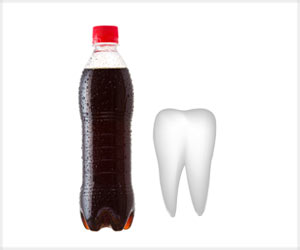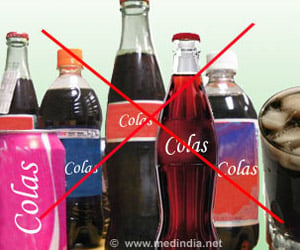Having one or two servings a day of sugar-sweetened soft drinks has been connected to a 35% greater risk of heart attack or fatal heart disease.

Vasanti Malik, a nutritionist at Harvard's T.H. Chan School of Public Health in Boston and the study author points out that the added sugar in sodas, fruit drinks, sweet teas and energy drinks can put you at risk of a heart attack, heart disease, and stroke.
The report highlights that having one or two servings a day of sugar-sweetened beverages has been connected to a 35% greater risk of heart attack or fatal heart disease, a 16% increased risk of stroke and a 26% increased risk for type 2 diabetes.
"Reducing the consumption of these drinks, it's not going to solve the heart disease epidemic, but it's one step that can have a measurable impact. It's not the only thing that needs to be done, but it's a very important thing," Malik said.
Marina Chaparro, a dietitian at Joe DiMaggio Children's Hospital in Hollywood, Florida, noted that so far, all studies have been focused on low fat and reducing fat and cholesterol.
"The dietary guidelines that are about to come out focus on added sugars, and not as much on cholesterol and total fat. Those are important, but the impact of sugar has become much more profound," said Chaparro, who is also a spokeswoman for the Academy of Nutrition and Dietetics.
Private soft drink companies most often use either table sugar (granulated white sugar) or high-fructose corn syrup to sweeten beverages. Researchers say that both sugar sources contain fructose and glucose, and these sugars can harm the heart.
Malik adds that fructose also damages the heart, but in more insidious ways. Its presence can force the liver to release triglycerides (an ester derived from glycerol and three fatty acids) and ‘bad' low-density lipoprotein into the bloodstream. Too much fructose causes fatty liver disease.
Excess consumption of fructose can also lead to too much uric acid in the blood, which is connected to a greater risk of gout. Inflammation also has been associated with heart disease, Malik said.
Finally, fructose can promote the accumulation of belly fat, another risk factor for heart disease, she said.
Meanwhile, William Dermody Jr., vice president of policy for the American Beverage Association, opines that the study unfairly knocks sodas and sweet drinks, and it doesn't prove sweetened beverages uniquely cause illness.
However, researchers warn that liquid sugars in sweetened beverages should be a health concern. This is because liquid sugars enter the bloodstream very quickly.
As of now, the researchers advise people to reduce the amount of added sugar in their diet.
The United States Department of Agriculture has proposed a new Nutrition Facts label that will reveal the amount of sugar added to a product and the amount that occurs naturally in the food.
For example, a container of yogurt might reveal that 9 grams of sugar from the milk and 10 grams of sugar have been added to make the product even sweeter.
Until the proposal comes to effect, consumers can avoid added sugars with the help of the current nutrition facts label - which does reveal details of total sugars - and by skimming the list of ingredients for dextrose, sucrose, sugar, syrup or high-fructose corn syrup.
References:
1. Vasanti Malik, ScD, nutrition research scientist, Harvard T.H. Chan School of Public Health, Boston; Marina Chaparro, RDN, CDE, MPH, clinical dietitian and certified diabetes educator, Joe DiMaggio Children's Hospital, Hollywood, Fla.; William Dermody Jr., vice president, policy, American Beverage Association; Sept. 28, 2015, Journal of the American College of Cardiology2. https://www.nlm.nih.gov/medlineplus/news/fullstory_154849.html
Source-Medindia














